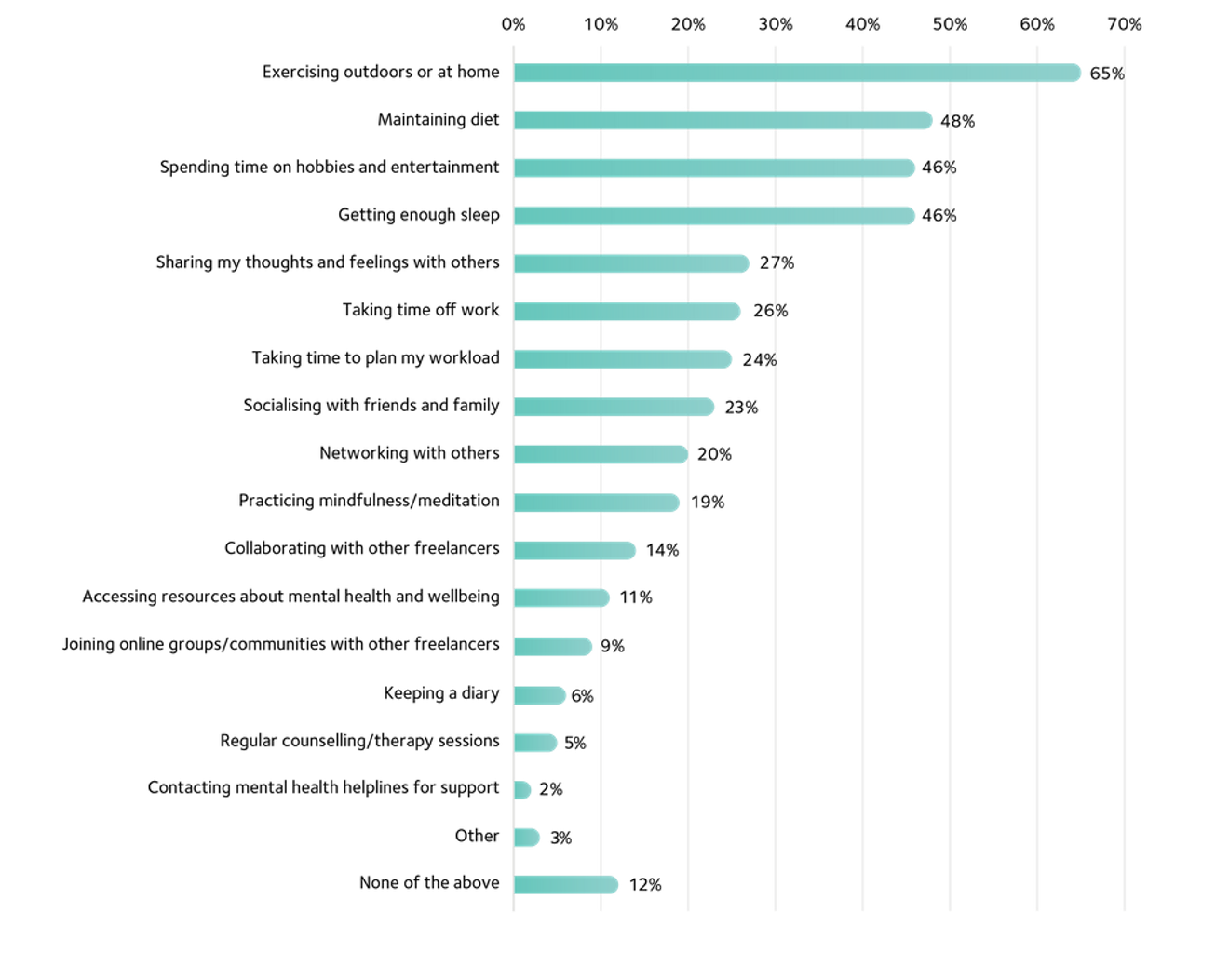
The self-employed benefit from greater control and autonomy how they work, but running your own business can also lead to higher levels of stress and uncertainty compared to employees; making them disproportionately more likely to report mental health problems.
Indeed, IPSE’s research has revealed that one in five freelancers believe that their current mental health to be either poor or very poor and a survey from Mental Health At Work found that over half of micro-business owners (56%) have experienced poor mental health in the past 12 months.
Concerningly, this research found that just one in five micro-business owners (20%) felt that running a business has a positive impact on mental health.
This compares to a figure of 60% for employees, who felt that they were generally happy at work.
With these figures highlighting a significant difference between the self-employed and their employee counterparts, we wanted to explore the potential reasons behind this and areas where the self-employed can improve their mental health.
Losing sleep over your own business
When you’re running your own business, it’s all too easy for pressure to build up from factors outside of your control - something that employees don’t have to contend with.
The UK’s smallest businesses can face cash flow issues from the persistent threat of late payment and worry about the impact of fluctuating income affecting their ability to cover expenses or bills. If you take these alongside the risks of getting sick, getting called up for jury service, being unable to find work and having to navigate the notoriously complex tax system, being self-employed can be extremely stressful at times.
Working too many hours
When every action or output contributes to your take home pay, it can feel like every second counts. It can therefore feel difficult to take a break or work the conventional hours of an employee.
Concerningly, IPSE’s research shows that one in ten of all freelancers (10%) take no time off work throughout the year whilst the majority (78%) report that they work even while on holiday.
If you're worried about burnout, we’ve put together a guide on how to spot the signs and outline steps for tackling it in our guide.
So, how can you start prioritising your mental health?
A good starting point is getting active. Almost seven in 10 of your fellow freelancers (65%) reported that this was effective measure in taking care of their mental health.
Freelancers have also reported that maintaining diet, spending time on hobbies and entertainment and getting enough sleep are the other two most crucial ways of prioritising your mental health.
You can see the full list of measures that your fellow freelancers adopt here:

If you're looking for ways to get active, why not join IPSE’s Freelancer Active Club on Strava? You track (and obviously compete) with fellow IPSE members.
The latest self-employed news and opinion
As part of ADHD awareness week, IPSE’s Joshua Toovey uses our latest research to review why self-employment works for the neurodiverse.

This blog offers an easy-to-understand overview of how you can take profits from your business in a tax-efficient way.

IPSE's Fred Hicks examines what Labour's commitment to reform rules around self-employment may mean for the sector.





